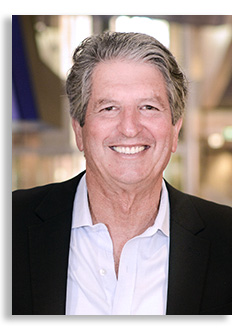
Click image for HiRes
Abstract
In this interview, Professor Martin Green, a leading figure in photovoltaic technology, discusses recent advancements and future directions in the solar industry. Key topics include:
1. Technological Innovations: Martin highlights significant achievements, such as new world records in heterojunction (HJT) and interdigitated back contact (IBC) cells, which are pushing the efficiency limits of solar cells.
2. Back Contact Cells: He emphasizes the commercial introduction of all back contact cells, noting their substantial efficiency gains and potential to dominate future solar technologies.
3. Silicon Tandems and Perovskites: Martin discusses the progress and challenges with silicon tandem cells, particularly the stability concerns of perovskites. He mentions alternative materials like CZTS, although they still require efficiency improvements.
4. Diversification of Technologies: He addresses the current landscape with multiple technologies in production, such as Topcon, HJT, and IBC, and the benefits and challenges of this diversified approach.
5. Voltage and Efficiency: Martin points out the importance of high voltages in achieving efficiency, especially in the competition between Topcon and HJT technologies. He believes the industry will maximize single-junction silicon cells' performance before fully transitioning to tandem cells.
6. Building Integrated Photovoltaics (BIPV): Despite the potential for solar-integrated building materials, Martin acknowledges the difficulties in this area, referencing the challenges even faced by high-profile attempts like Elon Musk's solar roof tiles.
7. Future Directions: Looking ahead, Martin envisions stacking multiple thin-film cells on silicon to boost performance, predicting a gradual move towards more complex multi-cell structures as technology advances and stabilizes.
The interview encapsulates the ongoing evolution in solar technology and the continuous pursuit of higher efficiency and stability in photovoltaic cells.
Click here to see all available video seminars.
Click here to go to the SPREE HOMEPAGE.
Brief Bio
Martin Green is Scientia Professor at the University of New South Wales, Sydney and Director of the Australian Centre for Advanced Photovoltaics, involving several other Australian Universities and research groups. His group's contributions to photovoltaics are well known and include holding the record for silicon solar cell efficiency for 30 of the last 35 years, described as one of the “Top Ten” Milestones in the history of solar photovoltaics.
Some of Professor Martin Green's Awards
2023 Queen Elizabeth Prize for Engineering
2023 Leigh Ann Conn Prize for Renewable Energy
2023 VinFuture Grand Prize in Hanoi for his transformational work in solar energy
2022 Millennium Technology Prize
2021 Japan Prize
2018 The Global Energy Prize for research, development and educational activities in the field of photovoltaics that have revolutionized the efficiency and costs of solar photovoltaics, making this now the lowest cost option for bulk electricity supply
2018 Celebrated Members of IEEE Electron Devices Society
2016 Ian Wark Medal and Lecture
2015 James Cook Medal of the Royal Society of New South Wales
2013 Fellow of the Royal Society of London
2012 Member of the Order of Australia 'for service to science education as an academic and researcher, particularly through the development of photovoltaic solar cell technology, and to professional associations.'
2009 Zayed Future Energy Prize finalist, recognised at the award ceremony for his ground breaking research in photovoltaic (PV) technology that will result in increased efficiencies, bringing solar energy closer to grid parity.
2008 Winner, 2008 Scientist of the Year Award
2006 Finalist, European Inventor of the Year (together with Stuart Wenham)
2003 Karl Böer Solar Energy Medal of Merit Award from the University of Delaware
2002 Right Livelihood Award for 'his dedication and outstanding success in the harnessing of solar energy, the key technological challenge of our age.''
2000 Millennium Award from the World Renewable Congress
2000 Medal of Engineering Excellence for Distinguished Achievement in the Service of Humanity from the World Engineering Federation (Hannover, 2000), 2000 Gold Medal from the Spanish Engineering Academy
1999 Australia Prize
1995 IEEE Ebers Award
1992 CSIRO External Medal
1990 IEEE Cherry Award
1988 Award for Outstanding Achievement in Energy Research[citation needed
1982 Pawsey Medal (Australian Academy)
